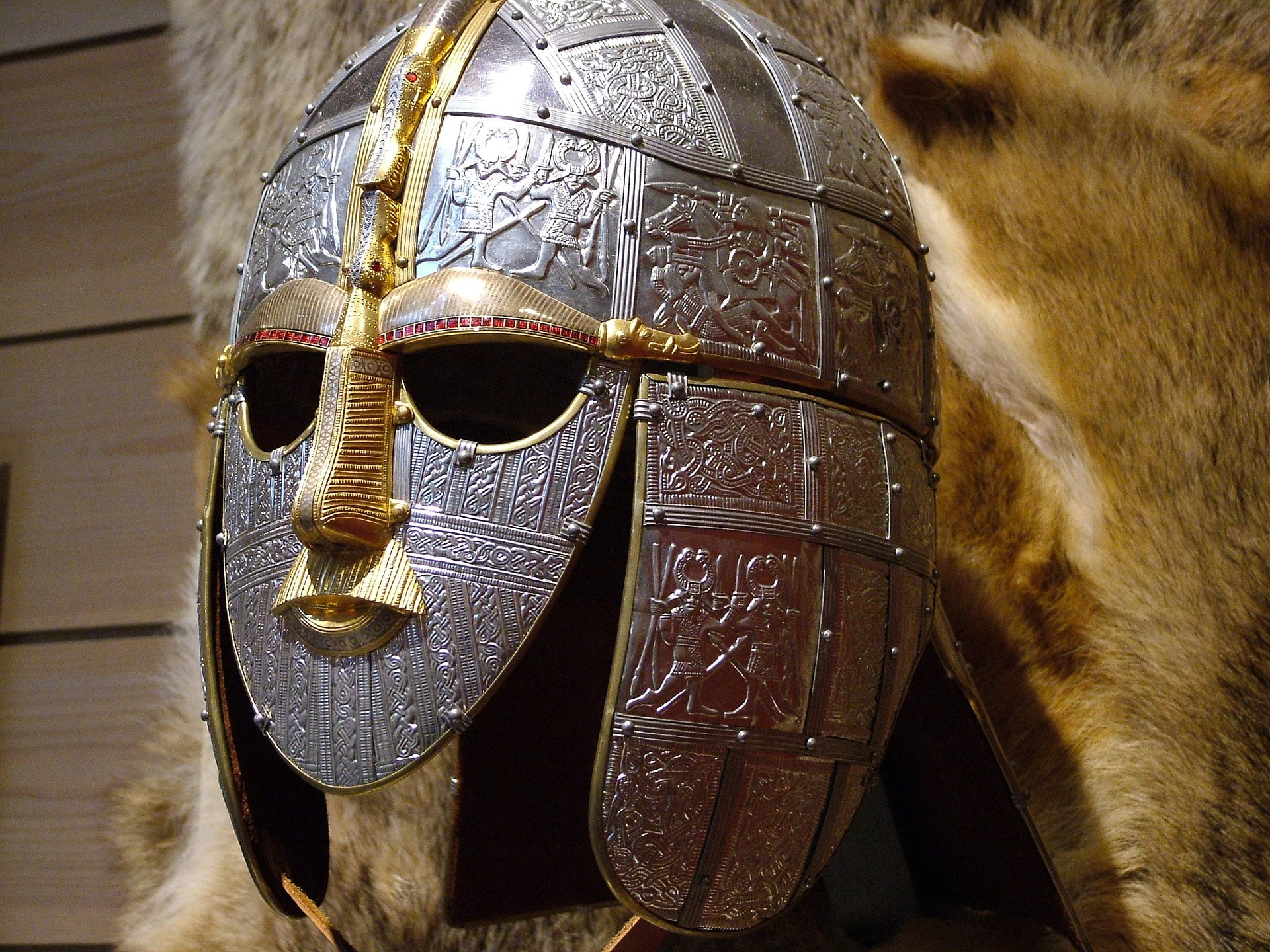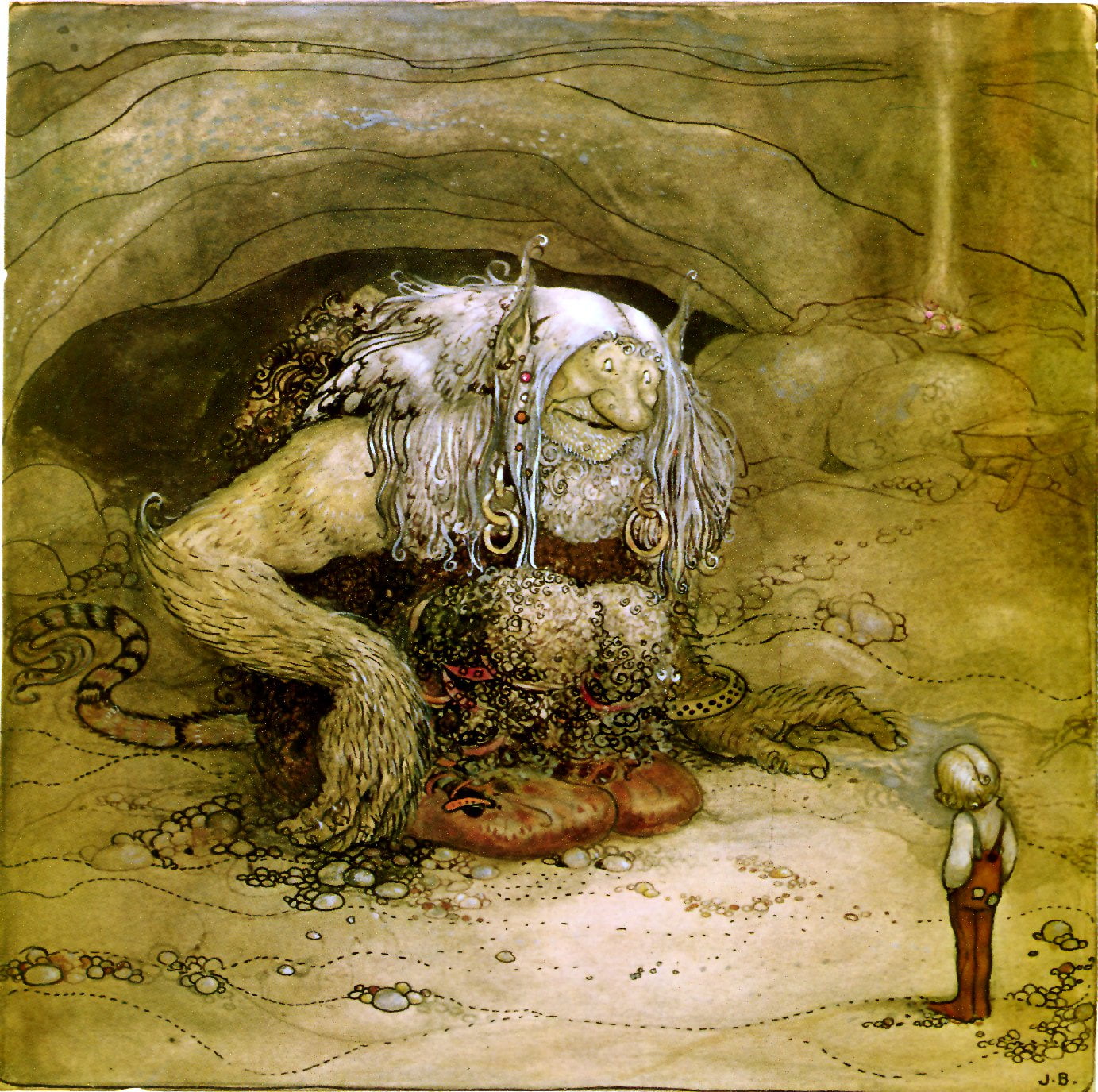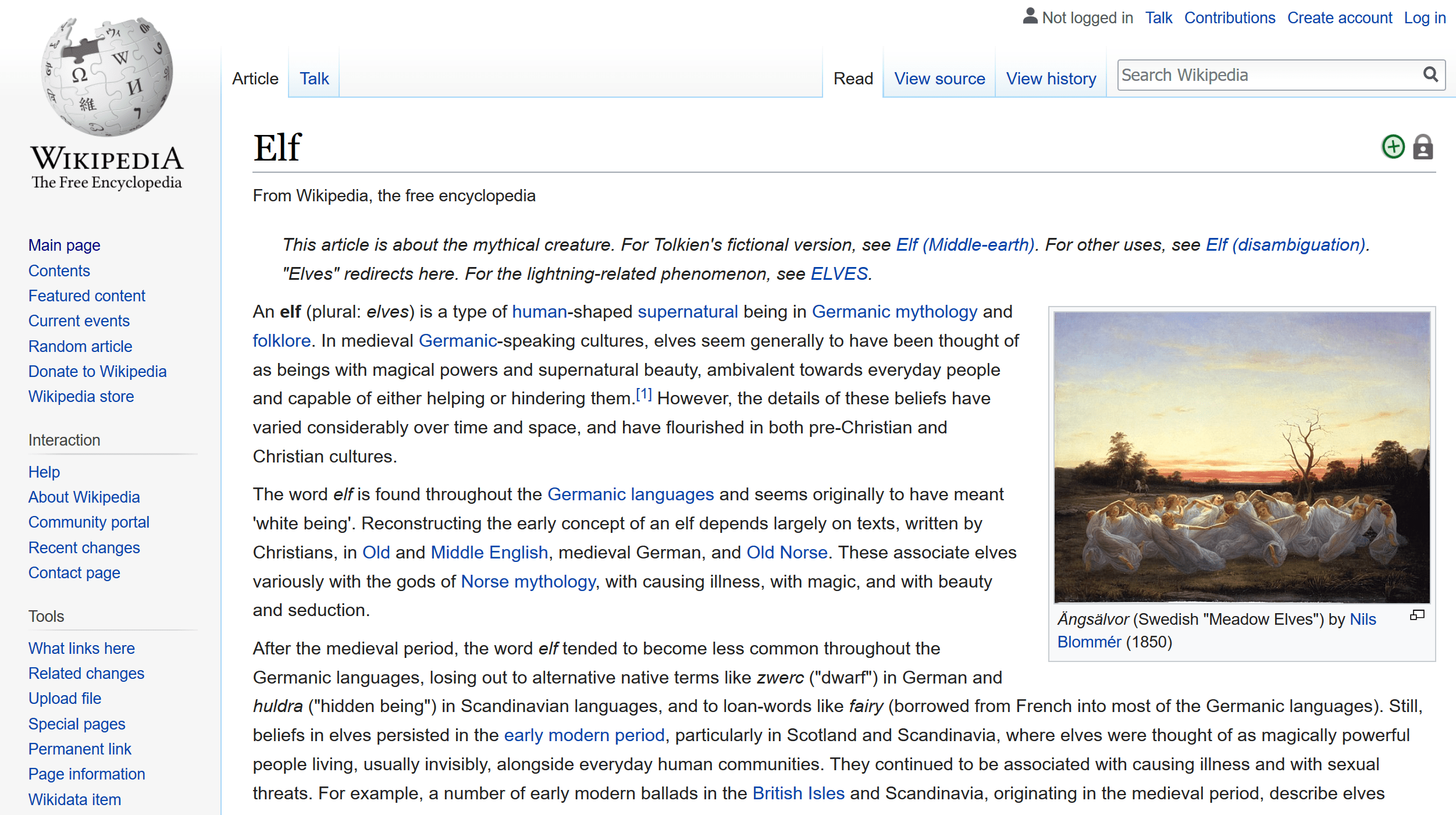I recently had the honour of being named Wikipedia Editor of the Week for the English-language Wikipedia. This was entirely unexpected—but I couldn’t have been more pleased! Wikipedia editing is one of my favourite things—and I do contribute to it a lot, mostly on medieval topics.
Some friends, who’d perhaps like to edit Wikipedia but don’t, have asked me how I find the time. Partly, I do just like relaxing with a cup of tea on a rainy evening and knocking up a little biography of a dead poet when other people might prefer to be watching telly. But there are easy ways to include Wikipedia in your busy life. So, here are some suggestions for how else people wanting to improve the public understanding of the Middle Ages can move the encyclopaedia forward.
I contribute to Wikipedia because I believe it makes a difference in the world.
No-one knows exactly how influential Wikipedia is on how people’s understanding the past. It certainly hasn’t averted the rise of post-truth politics. But those politics are a reminder that fighting for “a world in which every human being can freely share in the sum of all knowledge” (as is the Wikimedia foundation’s vision) isn’t a quaint throwback to the Enlightenment: knowledge is power, so the sharing of knowledge is the basis for equitable societies.
By 2014, the Internet was the primary source of information about science and technology for 47% of American adults—with Wikipedia being the leading online destination. Though we don’t have specific statistics, the picture is surely similar for the humanities; my academic monograph on Anglo-Saxon elves has sold maybe a thousand copies over a decade, but the Wikipedia entry for elf gets over a thousand page views per day.
I’m writing from my perspective as a teacher and researcher of the Middle Ages. But as the medievalist Richard Utz recently pointed out to me, even professional academics are amateurs most of the time. We’re world experts in a few things, but on each new project we research, or course that we teach, we venture into new territory. What really counts for a Wikipedia editor is knowing what reliable sources look like and having the Google-fu to find and assimilate them quickly. If you’re bothering to read The Public Medievalist—whether you’re a professional scholar or not—you’re probably this sort of person.
So, you’ve got no excuses.
Six Tips for Editing Wikipedia
1. Be bold!
Your entry doesn’t have to be perfect the first time. Being bold is what Wikipedia is all about!
Every year, I take a week to teach masters’ students about editing Wikipedia. The scariest thing I see that week is the cold sweat they break out into. They agonise about saving their first edit, their fingers quivering over the mouse button. Some refuse to do it point-blank—even if it’s just fixing a spelling mistake—because they don’t feel they have the authority to do it.
There’s something to be said for knowing how much you don’t know. But do you want to leave the world’s fifth-most accessed website in the hands of people who don’t know how much they don’t know?
You can’t break Wikipedia! The worst that will happen is that someone will undo your edit. So be bold!
2. Moaning about incorrect punctuation takes longer than fixing it.
You don’t have to register as a user to edit Wikipedia (though doing so is free and simple). You can just click ‘edit’ on any article and correct it. Easy! It’s so much better for you than grinding your teeth.
If all I achieve with this article is to recruit a few more people who will put Wikipedia’s commas where they belong, I’ll be happy. Many hands make light work.
3. Didn’t find the fact you wanted? Help your future self!

I’ll make a bet with you. I bet you a replica Sutton Hoo helmet that if you go to Wikipedia to check a date of death, what was the earliest manuscript of an obscure romance, or who it was who argued that the famous Norwegian king Haraldr the handsome-haired didn’t actually exist and—horrors!—the information isn’t there, it won’t be last time you want that fact at your fingertips.
Willing to take that bet?
So when you do the laborious work of looking up the information somewhere else, take a moment to add it in on Wikipedia (with a reference). You’ll be grateful the next time you need it.
4. Writing the information anyway? Share it!
Let’s take things up a level, to more substantial edits or creating new entries. There’s a lot of rewarding work to be done by quietly adding content on niche medieval topics. Pretty much any part of the Middle Ages will have attracted enough research to meet Wikipedia’s notability criteria. Moreover, these peaceful byways don’t draw in many other editors, so you’re unlikely to tread on anyone’s toes. Even an entry as obscure as The Four Daughters of God still gets over a thousand visitors a year—way more than most academic publications will ever see.
If you teach at any level, you probably make handouts with basic information about a text or topic, with explanations of key terms. If you teach in high school or a university, you probably produce lists of sources, editions, and translations. You might write your own summaries of the texts you teach. Maybe you show students diagrams that you’ve made.
These days, I build these into Wikipedia as I prepare for teaching—or, if they are images, I upload them with the Wikimedia commons upload wizard. In fact, instead of giving students notes, I often make a Wikipedia entry (or bring an existing one up to scratch), and just send my students there.
Not only does this mean that a lot more people than just my students benefit from my work, but it also saves me a lot of emails from students asking for a bibliography or a reference. I can just say “you’ll find it on Wikipedia”.

If you do research—either professionally or not—you spend a lot of time fact-finding. Again, you may summarise texts, and produce diagrams or maps. Imagine how much of that work is lying around in notebooks and on hard-drives around the world, useful to only one person (if that).
Obviously Wikipedia can’t just be a repository of research notes. But writing or improving on an entry can be a great way to get on top of a subject. This has become an integral part of my research-writing process: it’s a great way of making sure I organise my fact-finding, and of making sure I can find it again when I need it!
There might be other Wiki-worthy things that you’re doing. I’ve been taking Arabic classes recently, and I find it hard to motivate myself to do writing assignments just for the sake of the seemingly distant goal of getting better at Arabic. But if I’m writing for a more immediate purpose—like filling a gap in Arabic-language Wikipedia—I challenge myself more and learn better.
Sure, the Arabic I write is probably really bad. But now there’s an entry that wasn’t there before—that someone else with better Arabic can improve because I was bold!
5. Don’t just scream into the void of the Internet! Do something!

If you’ve read this far, you need to face up to the fact that you procrastinate by surfing around the Internet.
Yeah, I see you.
From this, I also infer that sometimes you also have arguments with people on social media.
Yep. You.
Sometimes we all need to do this. But sometimes we’re just wasting our time and energy.
One alternative would be to switch off the Internet and do something less boring instead. But if you want to do something productive (or can’t face cutting the cord cold turkey), Wikipedia is there for you! Whether you’re angry at the state of politics or education; misconceptions about the past or persistent falsehoods; the under-representation of medieval women of colour or the histories of slavery, there’s an article that needs your help. Even if you just want to fix more of those goddamn spelling mistakes, Wikipedia needs you. Or even, at least in my case, if you are suffering bereavement, Wikipedia can be a place where you can channel your frustrations into something lasting and useful.
6. Take a page under your wing.
If the above ideas don’t work for you, but you’d like to do something, a low-effort but high-value project would be to just add a couple of pages on topics where you’re a real expert to your watchlist.
Adding a page to your watchlist means that you’re notified when a page is edited. If an edit’s useful, no worries. If people make helpful, but poorly written or referenced, additions, you can just spend a moment tidying them up. When people ask a sensible question on the talk page, you can jump in to give a sensible answer.
Don’t get the wrong idea. Some Wikipedia entries are afflicted with an editor who sits upon them, toad-like, viewing all edits as incursions into their fiefdom. Don’t be a toad-itor. But adding well informed, constructive voices can only be a good thing.
Remember: Citations Beat Trolls.

Most Wikipedia editors are peaceable, helpful, live-and-let-live types. But it’s true that there’s also a significant minority who like throwing their weight around. They will sometimes undo scholarly work, and sling bafflingly legalistic Wikipedia jargon at unsuspecting new arrivals. It has happened to me. And behaviour like this is one reason why Wikipedia editors are overwhelmingly white men, a fact which is a long-term problem both for Wikipedia and for its representation of history.
In fact, the more popular a page is, the more different editors will be keeping an eye on it—or even, for real political hotspots like anything to do with medieval Rus’—jostling to get their view across. Like on any other social media, people will argue till the cows come home, ignoring what each other are actually saying and, half the time, basically making history up as they go along.
With the same effort that it would take to successfully change one sentence in a highly contested article, you might be able to create half a dozen new entries on unloved Anglo-Norman romances.
So there’s much to be said for just getting on with doing useful things in quiet corners, believing that good work will eventually be recognised.
Yet, maybe scholarly, well-informed editing is most valuable on the most popular or contested pages. And the great thing about Wikipedia, unlike the rest of the Internet, is that references to scholarly research carry weight across virtually the whole community. Committed trolls might ignore one or two references in support of a claim, but by the time you cite four or five, they lose interest in hassling you, because they know the community will back scholarly citations. Gathering the evidence that there is significant scholarship behind a claim can take time. But if you can plough ahead with a shield of references, you can do good editing even in fiercely contested areas.
Write History!
So, those were six easy (hopefully) tips for editing Wikipedia. My final piece of advice is harder—but also somewhere where specialist knowledge is most needed.
Amidst the current crisis of truth in the public sphere, scholars and experts—whether amateur or professional—have a complex double-duty: we need to represent the uncertain state of knowledge about the past—how even the best scholarship is fundamentally provisional. But we also need to be clear that the past isn’t just a playground for subjective opinion. Facts matter.
We also need to demonstrate how our understanding of the past has been shaped by ideologies—past and present—but also how it grows through reasoned debate and evolving evaluations of evidence.
Wikipedia’s history coverage often aspires to present a clear historical narrative, or to be a reliable repository of facts. It seeks to reflect scholarly consensus on the field. There’s a lot to be said for this, and for many topics it’s relatively easy for an amateur editor armed with Libgen or Sci-hub to pull the key facts together. But doing that makes history look static—Wikipedia doesn’t accommodate scholarly debate well.
I suggest that most historical articles would benefit from a historiography section, deftly mapping how views of an historical subject have changed over time and—no less importantly—why. Indeed, some topics are better understood as a set of debates rather than a simple recitation of facts. We need, concisely, to show the inner workings of history.
For the non-specialists out there, doing this can demand a huge amount of leg-work—it’s not an easy job for specialists either! But there are few better ways to become an expert on a topic than to mine the depths of scholars’ interpretations of it over time. It’s a good intellectual challenge, and if you’re keen on having an impact at the new frontiers of Wikipedia’s representation of the past, it’s great work to do.
Edit Locally, Think Globally
Through Wikipedia, we can play a part in reshaping the master-narratives of how the Middle Ages is understood by the public. From murky origins at the horizon of Wikipedia history, the Wikipedia entry for the Middle Ages has grown into an impressive overview and a useful portal into a rich array of articles. But on 10 May 2013, InvaderCito, then a college student taking a World History class, added a note at the beginning of the article: “This article is about Medieval Europe. For a more global outlook, see Postclassical Era.”
In one fell swoop, they invited the 4,500 people who view that page each day to think about the Middle Ages globally.
Since that moment, no-one reading “Middle Ages” has been allowed to imagine Medieval Europe existing in splendid isolation from the rest of the world. The entry for Postclassical History (as it’s now called) is a chaotic and visibly idiosyncratic endeavour—but it’s at the bleeding edge of where European Medieval Studies is moving as we try to re-world the Middle Ages. And if a college student can change history, so can anyone reading this article.
So let’s be bold.
If you enjoyed that article, please share it with your history-loving friends on Facebook, or on Twitter! And be sure to subscribe here to receive every new article from The Public Medievalist the moment it launches.
